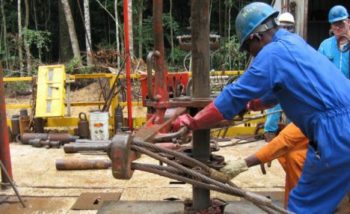
Nigeria’s battered economy suffered a year-long contraction in 2016, official data showed Tuesday, but the oil sector showed signs of recovery, raising hopes for an end to recession.
The latest figures showed that the gross domestic product (GDP) shrunk by 1.5 percent last year, largely due to oil production disruptions caused by attacks on infrastructure by militants demanding a greater share of revenues.
“This contraction reflects a difficult year for Nigeria,” said the National Bureau of Statistics (NBS), citing high inflation, low reserves of foreign exchange and a weak naira currency.
The economy shrunk by 1.3 percent in the fourth quarter alone, the figures showed.
But the slowdown in the oil sector eased as a result of ongoing government negotiations with rebels, who have stopped attacks on oil pipelines in the country’s restive southern swamplands.
Nigeria slid into its first recession in decades last year after rebels renewed attacks, hitting production and exacerbating revenue shortfalls from a sustained slump in global crude prices.
Nigeria relies on export sales for around 70 percent of government revenue and the bulk of its export earnings.
If oil output holds steady or increases, Nigeria’s economy is expected to grow in 2017, though growth in the non-oil sector will continue to suffer from a triple-whammy of double-digit inflation, foreign exchange shortages and sputtering electricity.